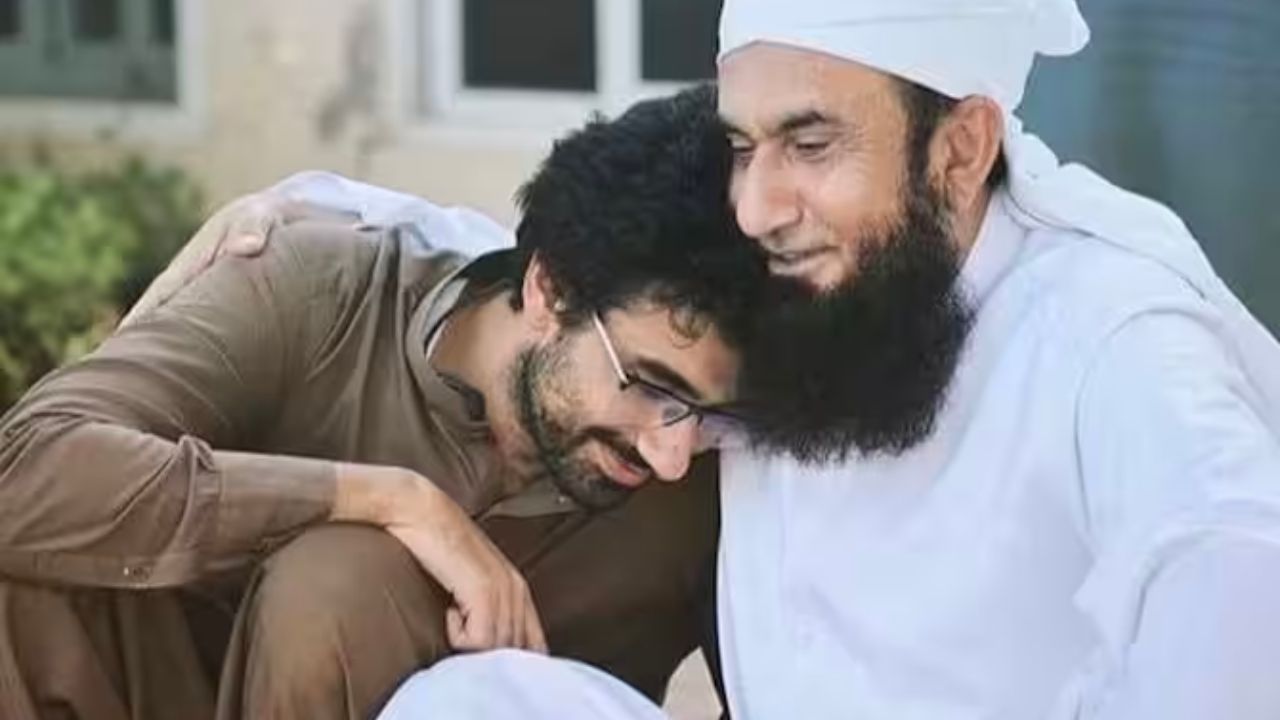Prominent Islamic preacher Maulana Tariq Jamil’s son Asim Jamil passed away on Sunday after sustaining a gunshot wound to his chest at his house. The incident occurred in the town of Tulamba, located in the Punjab region of Pakistan.
Maulana Tariq Jamil confirmed this heartbreaking news by taking to social media platform X (formerly Twitter). In his heartfelt post, he requested prayers for his departed son, expressing his family’s immense sorrow.
“We request you all to remember us in your prayers on this sad occasion. May Allah grant my son a high place in heaven,” Maulana Tariq Jamil shared on the platform.
انا للہ وانا الیہ راجعون
آج تلمبہ میں میرے بیٹے عاصم جمیل کا انتقال ہوگیا ہے. اس حادثاتی موت نے ماحول کو سوگوار بنا دیا۔ آپ سب سے گزارش ہے کہ اس غم کے موقع پر ہمیں اپنی دعاؤں میں یاد رکھیں. اللہ میرے فرزند کو جنت الفردوس میں اعلیٰ مقام عطا فرمائے۔— Tariq Jamil (@TariqJamilOFCL) October 29, 2023
The incident, as revealed by Maulana Yousaf Jamil, Maulana Tariq Jamil’s eldest son, unfolded at Asim’s private gym located within their house. Asim was reportedly exercising when a security guard was present to ensure his safety. Asim acquired the guard’s firearm and shot himself in the chest.
Grappling with Depression
In a YouTube video, Maulana Yousaf Jamil disclosed that his late brother had been grappling with depression for an extended period. Asim had been undergoing Electroconvulsive therapy (ECT) as part of his medical treatment for depression. On the fateful day, Asim was alone at his residence when he took the drastic step.
Efforts to save Asim were made as he was rushed to the Tulamba Rural Health Centre in his hometown, but tragically, he was pronounced dead there.
Speaking to the media, Regional Police Officer (RPO) Sohail Chaudhry shared, “Asim shot himself in the chest inside a gymnasium at his home. According to the family, Asim committed suicide.” The RPO also revealed that the police had acquired CCTV footage that confirmed Asim’s act, which was subsequently sent for forensic analysis.
Maulana Tariq Jamil is a widely regarded Islamic preacher, renowned for his efforts in promoting self-purification, advocating for non-violence, adherence to Allah’s commands, and following the path of the Prophet Muhammad (PBUH). His influence transcends borders, with a massive following in Pakistan, India, and among Urdu-speaking overseas Pakistani and Indian Muslims.
Related











































